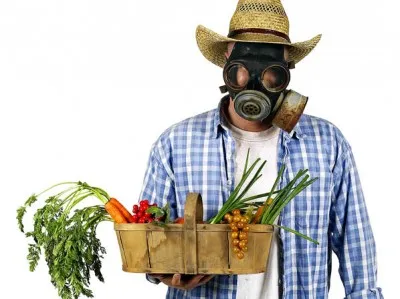
Today I bring you a topic that is not well known, or well, I haven't seen much information about it in Spanish.
And with this "fever" for health and organic, many people have not had the time to investigate what it means to be organic, so I will begin by explaining its definition or concept.
According to the homepage alimentos-organicos. ar "... organic foods are those that have been grown without using any chemical elements (agrochemicals, additives, pesticides), and without the involvement of genetically modified organisms. They are particularly careful about the environment and the use of biodegradable products in their integral production,"sounds good, right? the problem is that these foods tend to have much higher prices than those that are treated with pesticides, and realistically, at the moment the world economy is not to spend so much on food.

The most critical thing about the situation is that it has been proven that chemicals can stay in food even though you wash them and they can cause illness, which is not a problem, so I asked myself: is it necessary to buy all of our organic food? Should we stop shopping in our markets by buying in places where "healthier" food is sold? Well, this is what I found;
Doing a brief investigation I have come across a little secret, and it is not necessary to buy everything organic to ensure the best quality in our food. What do you mean? Well, let me tell you, The Environmental Working Group is an American organization that specializes in research in areas related to toxic chemicals, agriculture and land.

Each year, this organization publishes a list of twelve fruits and vegetables that are produced with a greater amount of toxic and harmful residues for our health and another list of the fifteen fruits and vegetables that have a smaller amount of pesticide residues.
Knowing this, it is easier to choose which are the fruits and vegetables that in the way of the possible we should consume organic and which are not so necessary, next I leave you the lists of this year, hoping they are very useful.
Interesting, isn't it? For example, the skin thickness of a peach is much thinner than that of a pineapple, so when you wash a peach it may still contain pesticide residues and as soon as you peel a pineapple there is less chance of residues remaining.
I hope this ticket will help you and make your shopping smarter and without spending too much on products that don't need to be organic.